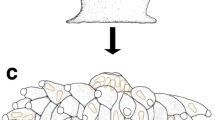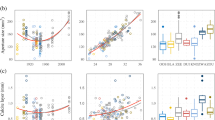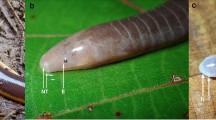Abstract
SEVERAL colonies of Tubularia indivisa which have lived in the aquaria for three years are noticed as exhibiting alternating periods of activity and rest. Broadly speaking, the hydranths die off about midsummer and reappear about midwinter, the times in one particular case for the growth of new lengths of hydrocaulus and for the formation of new hydranths being December, 1919, January, 1921, and January, 1922, and in another January, 1920, January, 1921, and December, 1921, the hydranths in each case finally dying off in the intervening periods between the end of May and July. Colonies obtained from moderate depths in January generally show clearly marked new ends to their hydrocauli, such new growth often being an inch or more in length.
This is a preview of subscription content, access via your institution
Access options
Subscribe to this journal
Receive 51 print issues and online access
$199.00 per year
only $3.90 per issue
Buy this article
- Purchase on Springer Link
- Instant access to full article PDF
Prices may be subject to local taxes which are calculated during checkout
Similar content being viewed by others
Author information
Authors and Affiliations
Rights and permissions
About this article
Cite this article
ELMHIRST, R. Cyclic Conditions and Rejuvenation in Hydroids. Nature 109, 208–209 (1922). https://doi.org/10.1038/109208b0
Issue Date:
DOI: https://doi.org/10.1038/109208b0
This article is cited by
Comments
By submitting a comment you agree to abide by our Terms and Community Guidelines. If you find something abusive or that does not comply with our terms or guidelines please flag it as inappropriate.



